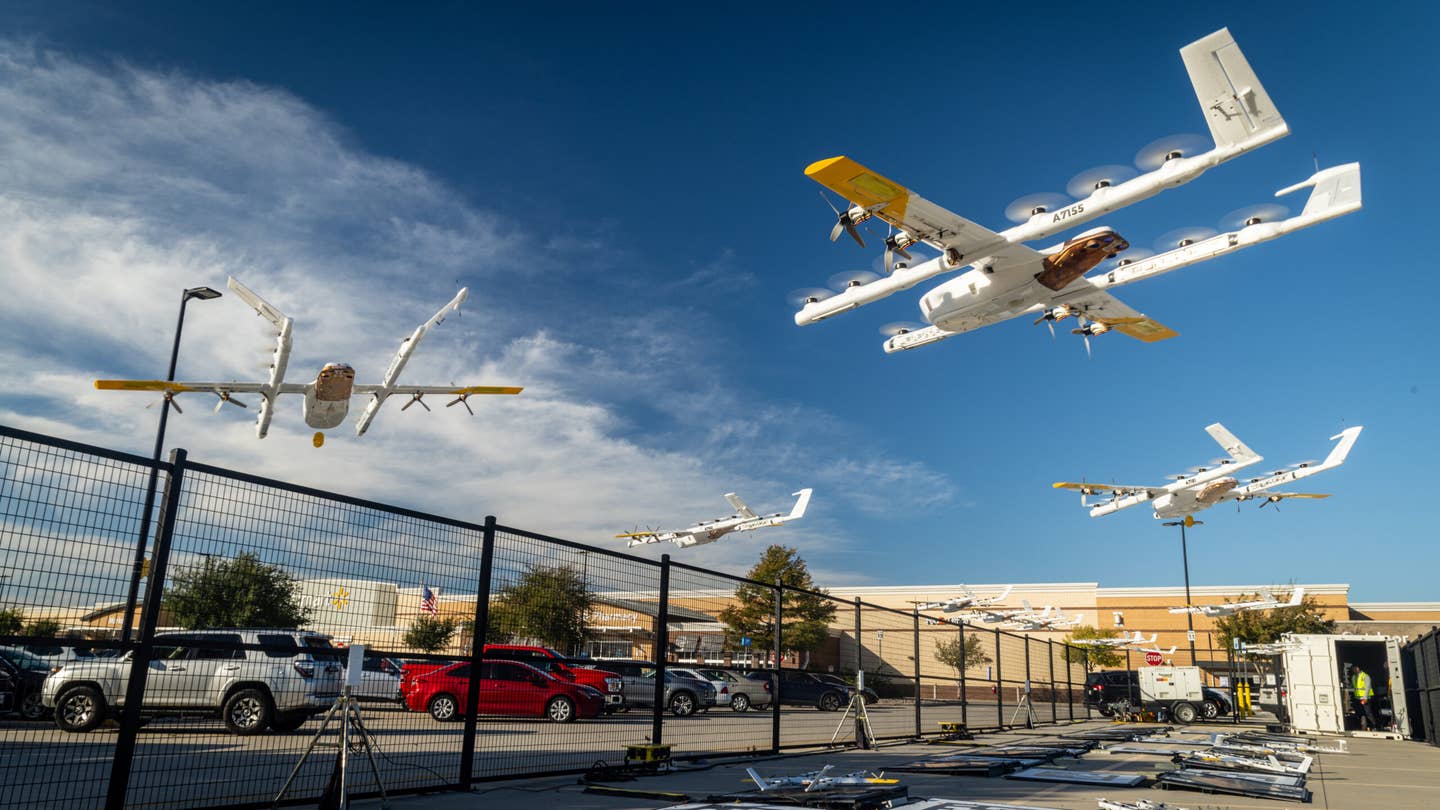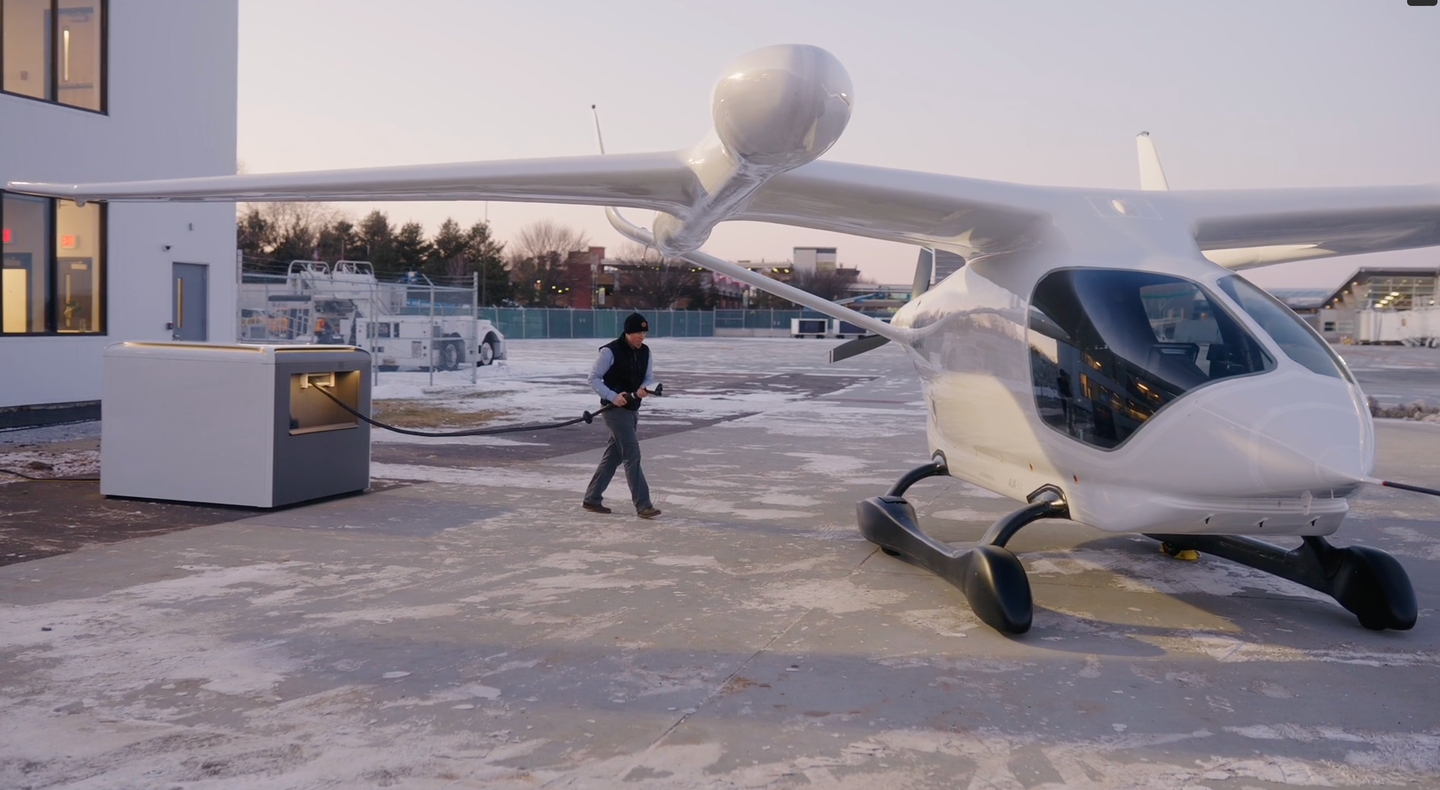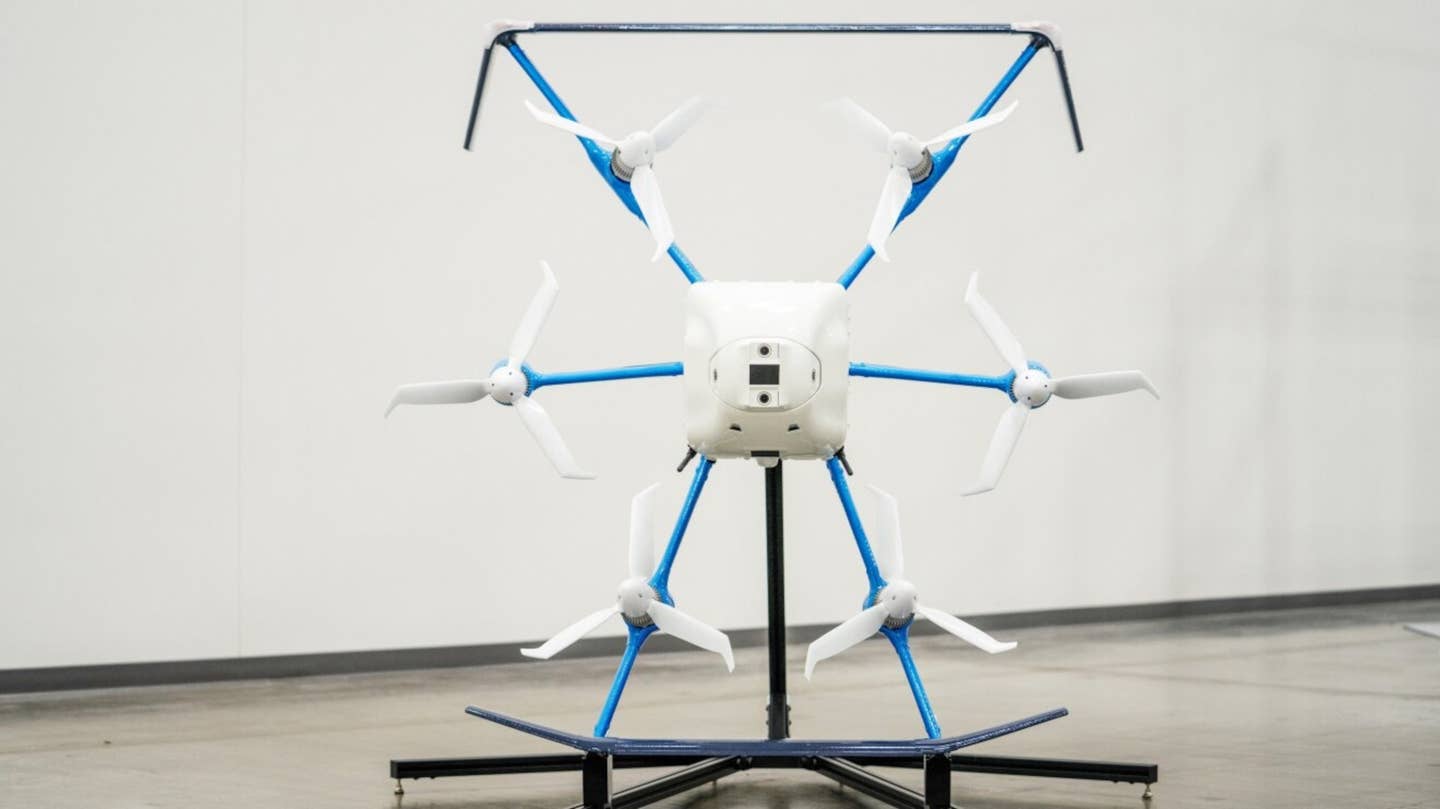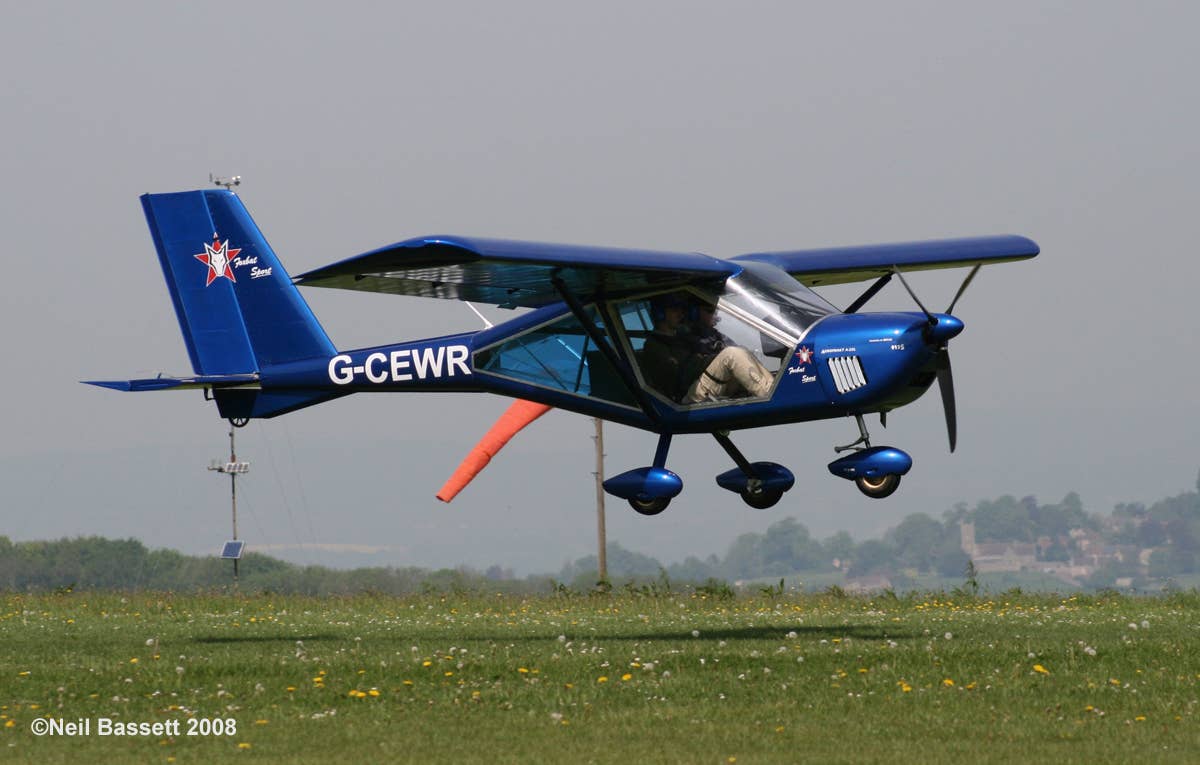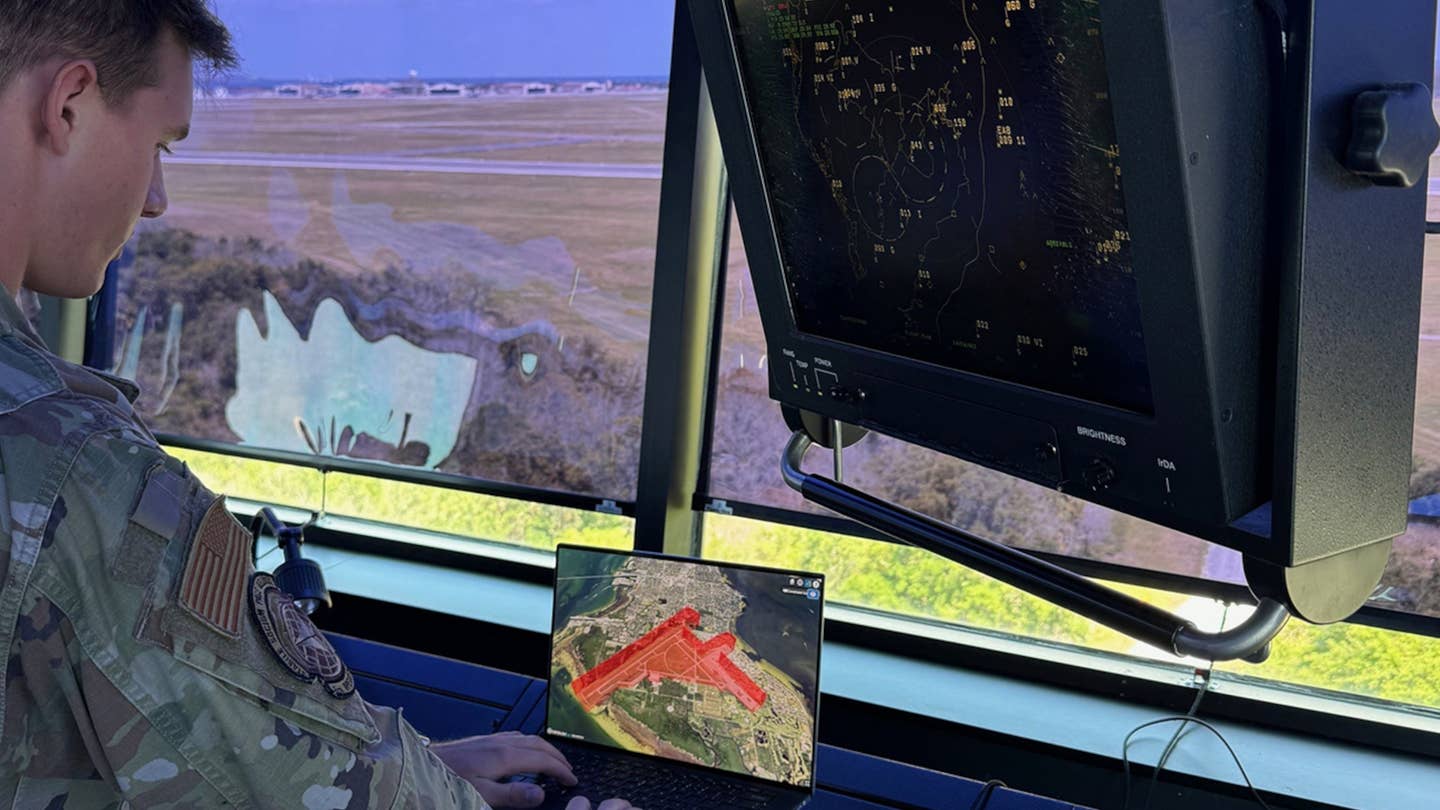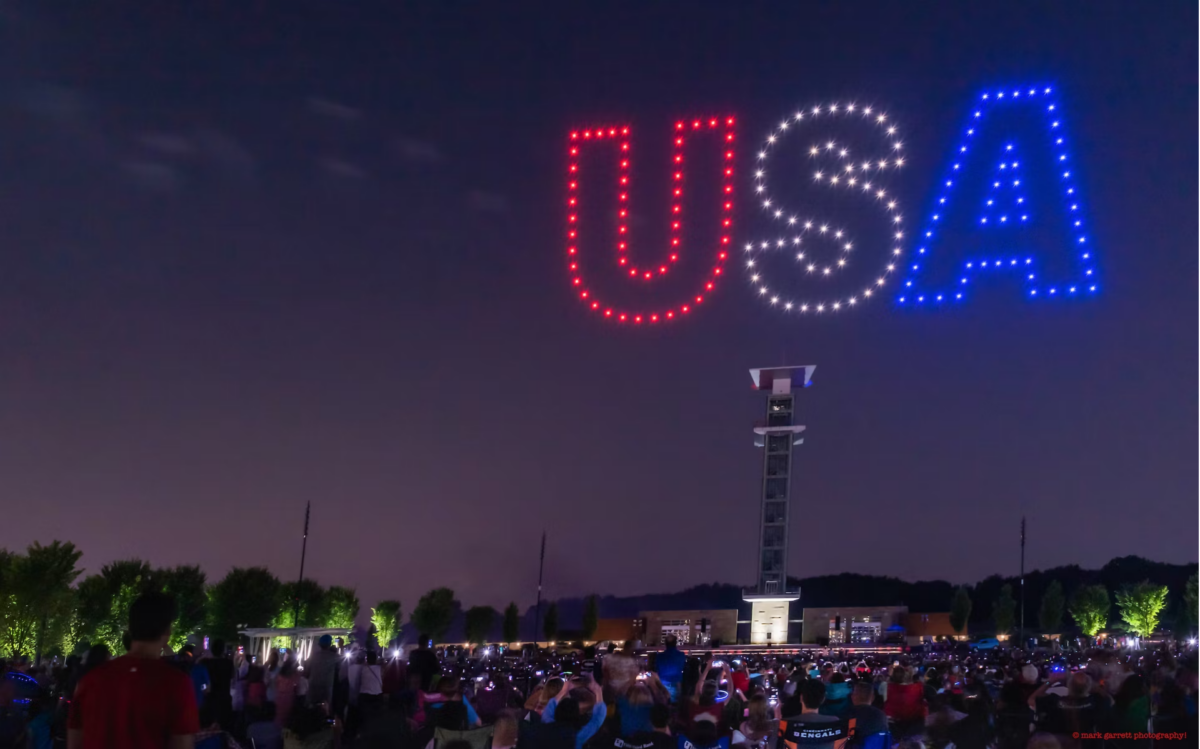Flytrex Granted FAA Approval for Long-Range Commercial Drone Deliveries
The firm joins Wing, UPS, Amazon, Zipline as the newest Part 135 drone operator.
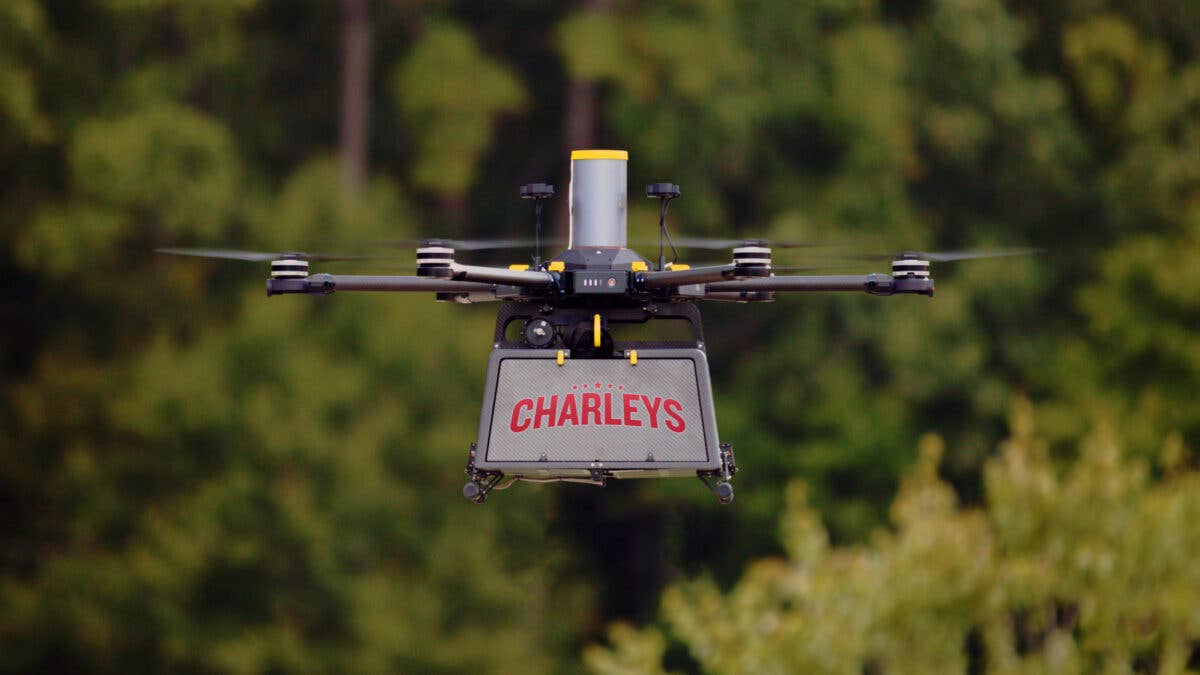
A Flytrex drone carries an order from Charleys Philly Steaks in Durham, North Carolina. [Courtesy: Flytrex]
Editor’s Note: This article originally appeared on FreightWaves.com.
The drone delivery industry, just like the unmanned aircraft that power it, is currently flying well below the stratosphere.
Among the drone firms that have made their 2022 delivery figures public, none eclipsed more than a few thousand deliveries, mainly owing to the Federal Aviation Administration’s stringent regulations around the young industry.
Those rules, designed to ensure the safety and privacy of the public, have limited commercial drone delivery operations to a handful of companies with FAA approval. But this week that select group got a little larger.
On Monday, Israel-based drone delivery provider Flytrex announced the FAA granted the firm a Standard Part 135 Air Carrier Certification, which according to the agency is “the only path for small drones to carry the property of another for compensation beyond visual line of sight.”
In other words, the certification allows companies to launch and operate long-range commercial drone delivery services without a limit on size or scope. Flytrex joins Alphabet’s Wing, UPS Flight Forward, Amazon Prime Air and Zipline as the only firms with such an approval.
There are still some restrictions on what Standard Part 135 Air Carriers can do—for example, they must receive authorization for each type of operation they want to conduct. But the certification is considered the most lenient regulatory framework available for drone delivery operators today.
The primary alternative, which Flytrex and others have utilized since around 2019, is operating under an FAA exemption or through an initiative like the UAS Integration Pilot Program (IPP), a yearslong program aimed at introducing drones to U.S. airspace and evaluating their benefits and drawbacks.
But those methods are temporary. In order for an operator to get off the ground and stay airborne, a Standard Part 135 Air Carrier Certification is the best option.
“We live in an era of instant gratification, where consumers want to get their food or goods faster, more reliably, more economically and more sustainably — and drone delivery has risen to the occasion,” said Yariv Bash, CEO and cofounder of Flytrex. “Flytrex’s continued success delivering to customers throughout North Carolina and Texas has put us ahead of the curve.”
Since 2019, Flytrex has operated its North Carolina services under the IPP and the subsequent BEYOND program, a follow-up initiative aimed at addressing concerns with flights beyond the visual line of sight (BVLOS) of the pilot.
Today, the firm’s network includes five delivery areas—four in North Carolina and one in Granbury, Texas, added in March as part of an expansion—reaching tens of thousands of households by using a tether to lower orders directly into their yards.
But now, Flytrex is aiming much, much higher. Alongside aircraft management partner Causey Aviation Unmanned, the company said it will expand its services nationwide to, by its estimate, 82 million eligible front and back yards.
“Flytrex’s technological expertise, innovation and safety-first approach has helped elevate our service to new heights in drone delivery,” said Jeff Causey, founder and COO of Causey Aviation. “Our close cooperation with the FAA has provided just the right tailwinds to help bring about this drone revolution.”
Among the handful of Standard Part 135 Air Carriers, Flytrex stands out. It’s not a subsidiary of a larger company and doesn’t have the massive coffers of Wing, Flight Forward or Prime Air, nor does it have the volume of Zipline, which has completed over 450,000 commercial deliveries since 2016.
Flytrex did launch one of the world’s first fully autonomous drone delivery systems in Reykjavik, Iceland, in 2017. But among its new peers, the Israel-based provider is probably the least established name, further amplifying the significance of the milestone.
Thus far, smaller drone firms have experienced minimal success obtaining Part 135 approvals. Some have gone a different route, opting to certify their drones instead of operations.
Take Matternet, which in 2022 saw its M2 drone certified as an aircraft and approved for U.S. production by the FAA. Flytrex is currently going through a similar process with its FTX-M600P model.
Drone delivery providers will need to certify both their aircraft and operations in order to avoid regulatory logjams. But Flytrex’s approval this week serves as evidence that smaller operators have a path forward in the growing space — even if it’s an arduous one.
For more coverage on drone delivery, go to FreightWaves.com.

Subscribe to Our Newsletter
Get the latest FLYING stories delivered directly to your inbox

